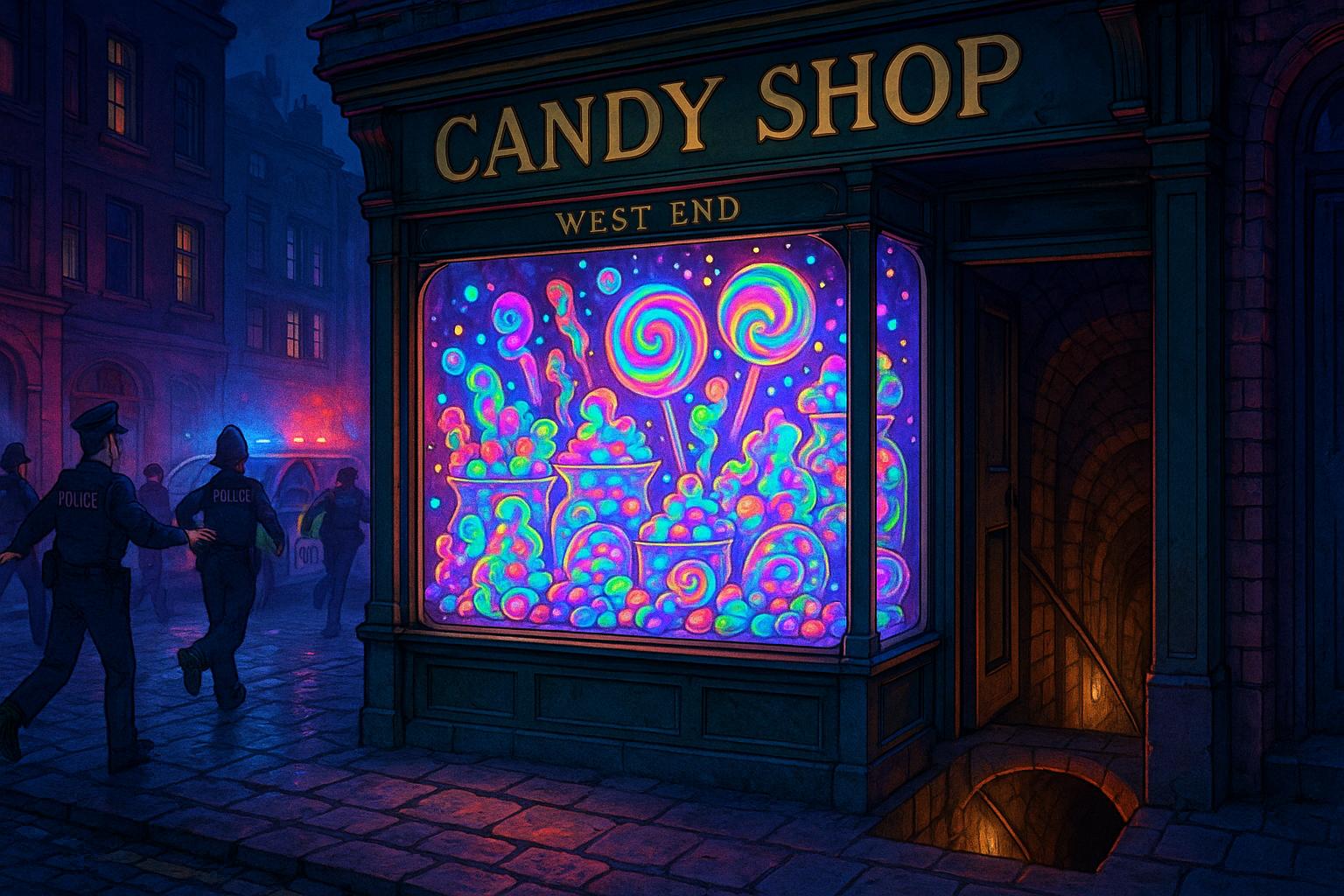In the bustling heart of London's West End, a sweet shop's recent dealings have sparked outrage and concern after reports emerged of tourists being charged exorbitant prices for sugary treats infused with hallucinogenic substances. Once known as Gummylicious, the establishment, now operating under the name Londenero, became the focus of a Metropolitan Police raid following a complaint from a customer who was charged £899 for two bags of sweets. This incident has raised questions about the safety and legality of the products being sold in the area.
During the police operation, investigators from Westminster Council uncovered a range of products not only included magic mushroom cookies branded as "Magic Dragon" and "Game Over," but also unlicensed CBD products from a neighbouring shop themed around the Harry Potter franchise. The scale of the raid was unprecedented, yielding over 3,000 seized items, making it the largest impounding of suspected counterfeit and unsafe goods on Oxford Street to date.
This troubling incident reflects a broader concern regarding the proliferation of psychoactive substances in commercial settings, echoing similar cases from around the world. For instance, in Berlin, a 2008 case saw authorities shutter a sweet shop for selling chocolates laced with magic mushrooms and marijuana, highlighting that such practices are not isolated incidents. The rise in popularity of magic mushrooms, particularly in North America, has further complicated the landscape, with a Rand Corporation study noting that over 3% of Americans reportedly consumed psilocybin last year.
Critically, ongoing investigations revealed alarming practices within Londenero. The shop was found to be selling food items without necessary English translations on their labels, posing significant health risks, particularly for consumers with allergies. Matthew Nelson, a Senior Environmental Health Officer at Westminster City Council, stated in court that labels lacking required information can endanger customers attempting to read crucial nutritional information. The council has consistently prioritised consumer safety, having already recovered over £1 million in counterfeit goods from various establishments over the past two years.
The situation at Londenero escalated further when police discovered a hidden section of the shop, complete with an underground tunnel. This clandestine escape route allowed two staff members to evade capture during the raid. Martin Johnson, a local resident, expressed his disbelief at the operations unfolding in the sweet shop, stating, “It’s astonishing that such activities could happen right in the heart of London, where tourists expect to find value and safety.”
The court proceedings prompted a response from Councillor Adam Hug of Westminster City Council, who described the incident as indicative of a troubling trend among US-style candy shops in the area. As the number of mixed candy and souvenir stores on Oxford Street has decreased from 40 to 18 since the pandemic, Hug emphasised the need for continued vigilance against these exploitative practices.
Mr Jan, the shop's director, distanced himself from the illegal activities during the hearing, claiming he had not been in the shop recently due to personal issues and was unaware of the presence of the psychedelic cookies. Despite his claims, he was ordered to pay substantial costs to the council, further signalling the seriousness with which regulators are handling the situation.
As this case unfolds, it serves as a reminder of the ongoing battle against unregulated sales of potentially dangerous products. With the illicit sale of psilocybin and other substances on the rise, it becomes increasingly urgent for authorities worldwide to implement stricter regulations and ensure public safety, while also retaining the vibrant charm that attracts millions to the West End.
Reference Map
- Paragraphs 1, 2, 5, 6, 8
- Paragraphs 3, 4, 7
- Paragraph 6
- Paragraph 3
- Paragraph 6
- Paragraph 6
- Paragraph 3
Source: Noah Wire Services
